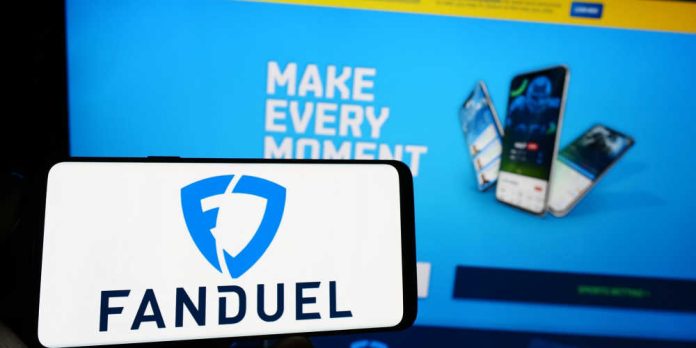FanDuel CEO Amy Howe has outlined her worries for young people and minors when it comes to the prevalence of sports betting across the US.
Speaking with CNBC’s Contessa Brewer, Howe outlined that FanDuel does not enter into agreements with colleges for a myriad of reasons, but one being that she has two teenage sons herself. She explained that the links between the sporting and gaming industries, while hugely beneficial, can offer some unforeseen circumstances.
Howe told Brewer: “I see it with my kids all the time. Gaming and sports is just endemic, right? When kids are drafting their fantasy sports leagues, and they’re watching four different games on Sunday, it’s just part of the culture and there’s a really positive aspect of that, right? But the unintended consequences if it’s not managed the right way that you know, there can be challenges over time.”
FanDuel’s CEO stressed the importance of responsible gaming messaging and not aggressively marketing to college students, which has been of interest to the industry this year given the high-profile college sports betting scandals in Iowa and elsewhere.
She explained that messaging from regulated sportsbooks should be done in the right way, and praised parent company Flutter’s approach to its global RG strategy.
“I wear two hats,” she added. “I’m the CEO of FanDuel, but I’m also a mom of three teenage boys. On the one hand, we sit here and we talk about how much progress has been made in a very short period of time.
“On the other hand, you know, I look at my home state, California, where sports betting is not yet legal, and it’s becoming – as sports betting becomes more mainstream, I think the distinction between a legal regulated sports bettor like FanDuel, and some of the offshore operators who are not operating legally and protecting consumers, that line starts to blur and it’s confusing.”
Elsewhere in the conversation, which was part of CNBC’s Evolve Global Summit, Howe addressed the imminent launch of ESPN BET and the recent launch of fellow challenger brand Fanatics.
ESPN BET is set to launch in late 2023 and is expected to spend big to make market share gains over the next half-year. Penn Entertainment CEO Jay Snowden expects losses to swell in Q4’23 and Q1’24 as it spends big on Super Bowl and March Madness promotions to gather momentum.
Meanwhile, Fanatics, buoyed by its $225m buyout of PointsBet’s US division, is gathering pace by offering NFL jerseys to new bettors on its platform. It is no secret that both challenger brands aim for over 20% market share in the US over the next few years.
However, Howe explained that, while the two new competitors boast strong brands and promotional strategies, particularly in the latter, it is a great product that rises to the top, and that FanDuel is reaping the rewards by attempting to be the first operator to have an EBITDA positive in 2023.
She added: “At the end of the day, if your product doesn’t work, it doesn’t matter how great your brand is, you’ve got to have a really phenomenal experience. But at the same time, one of the things that we’re seeing which is not dissimilar to many ecommerce industries, is that you’ve got to have scale, right? And this year will be a very important inflection point for FanDuel, but I would argue for the industry.”
One key pillar to unlocking the next phase of growth and further profitability is online casino expansion in the US. Little progress was made in 2023 on that front, with only Rhode Island – set to be monopolized by Bally’s – passing legislation this year.
Prospects of progress in 2024 look bleak, too. But lawmakers in states like New York, Indiana and Iowa will be attempting to pass legislation in the next couple of years.
FanDuel, Howe explained, will be ready for any further state launches, but is cautious that the process is much slower than sports betting, owing to several complications.
“It’s a bit more complicated because you have more stakeholders. If you look at some of the tribal relationships in California, in Florida, it’s a good example of why it’s been a bit more challenging for igaming. But I think over time, what you’ll see is that when we can create – we demonstrated that when you create a safe and legal environment for consumers to operate in, it’s actually good for consumers.”














